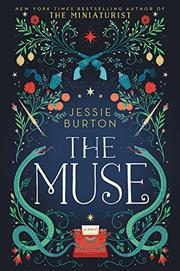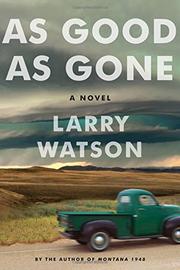Writing historical fiction is a juggling act. Historical fiction authors must painstakingly research every detail of what their characters wear, what’s happening around them, what they eat, and of a myriad of seemingly minor details that, if inaccurate, will diminish the credibility of their novel. While making sure their book is historically accurate, they also have to write a compelling narrative and build characters that engage readers. In 2011, Bill O’Reilly and co-author Martin Dugard published Killing Lincoln, a novel about the President’s assassination. Immediately after publication, errors including scenes set in the Oval Office (which wasn’t built until 1909) made critics wince and even caused the book store at Ford’s Theatre to refuse to carry the book because it was “riddled with inaccuracies.” Later editions corrected the errors and the book sold extraordinarily well, but historians and reviewers still found it lacking. My choices for the best historical fiction of 2016, combine meticulous research and a compelling story. Readers of historical fiction should expect nothing less.
My Best Fiction of 2016 list featured seven novels set primarily in the past. Everyone Brave is Forgiven by Chris Cleave, A Gentleman in Moscow by Amor Towles, Heirlooms by Rachel Hall, News of the World by Paulette Jiles, The Summer Before the War by Helen Simonson, The Underground Railroad by Colson Whitehead, and Wintering by Peter Geye. Links to full reviews of each are found in the titles.
- As Good As Gone by Larry Watson
- The Bowl with Gold Seams by Ellen Prentiss Campbell
- Eliza Waite by Ashley E. Sweeney
- The Hollow Land by Jane Gardam (written in 1981, US publication 2014)
- The Lilac Girls by Martha Hall Kelly
- Mischling by Affinity Konar
- The Muse by Jessie Burton·
- The Wonder by Emma Donoghue
The Best Historical Novel of 2016 that Will Make You Read (or Reread) Kate Chopin’s classic The Awakening and Beg Your Book Club to Discuss Both:
Eliza Waite by Ashley E. Sweeney, Eliza is a resolute widow who moves to Alaska during the 1890s gold rush where she opens a bakery and awakens to her own needs and abilities. Tying this book to Kate Chopin’s classic The Awakening enlivens the story while the plot twists and evocative weather imagery make this a winner of a debut novel. GPR/PP/SN, BC
The Best Historical Novel I Read in 2016 (U.S. publication in 2014) that Reads Like a Classic:
The Hollow Land by Jane Gardam is an absolute charmer. The voices of the young English boys, Bell and Harry resonate. Harry is from London and his parents are renting a house on farmland owned by Bell’s family. The two very different boys explore the countryside and grow along with the land where they meet unique characters. Gardam offers wry British humor and her own brilliantly economical use of just the right words to illuminate characters, time, and place. Lovers of the Old Filth trilogy will rejoice to hear that this novel is in print. It's set in the 1960s and is told in stories that could be read on their own but make for a cohesive novel. (Written in 1981, it won the Whitbread Prize.) GPR/PP
The Best Historical Novel of 2016 that Transports You to 1850s Ireland:
The Wonder by Emma Donoghue is set in 1850s rural Ireland where a young girl has supposedly gone without food for months. A scientifically trained nurse who studied with Florence Nightingale doubts the veracity of the tale and is sent to watch over the girl in a tiny village in the middle of Ireland. Donoghue’s exploration of prejudice against Irish Catholics is masterful. The Wonder is a wonder of tension and storytelling dexterity with great voice and historical detail. Perfect for fans of Hannah Kent’s Burial Rites. G/GPR/PP, BC
The Best “Hybrid” Historical Novel of 2016 that Illuminates a Little-Known U.S. Historical Event:
The Bowl with Gold Seams by Ellen Prentiss Campbell reimagines little-known history between VE Day and VJ Day when the Japanese ambassador to Berlin, his staff, and their families were held in a Pennsylvania resort which the U.S. commissioned as an internment center. The novel focuses on Hazel Shaw, an imagined young woman, working at the hotel where the detainees were kept, and on her life years later when she faces a moral dilemma. I call it a “hybrid” historical novel because part of it is set in the present day and part in 1945. GPR/PP/SN, BC
The Best Historical Novel of 2016 that Combines Art, Love, Words, and a Touch of Mystery
The Muse by Jessie Burton links Odelle, a Caribbean immigrant in 1967 London with Olive Schloss, an English heiress, and Isaac Robles and his sister Teresa, poor villagers in Spain in 1937. When a painting rumored to be by Robles is brought to the Skelton Institute of Arts, where Odelle works, questions arise about its provenance. G/GPR, BC
The Best Historical Novel of 2016 that Examines Little Known Women of World War II:
The Lilac Girls by Martha Hall Kelly is based on the true story of Caroline Ferriday and her work to help women survivors of Ravensbruck concentration camp as well as of Herta Oberheuser, one of the Ravensbruck doctors prosecuted at Nuremberg and on a teenage resistance fighter sent to the camp, Kelly makes these stories of World War II bravery and cunning come alive as she makes them human through showing romantic interests and society doings. GPR/PP/SN, BC
The Best Historical Novel of 2016 That’s Difficult to Read:
Mischling by Affinity Konar exquisitely bears witness to the atrocities perpetrated by Josef Mengele at Auschwitz, but reading of the abuses suffered by so many children in Mischling was almost more than I could endure. Twins Pearl and Stasha’s dual narratives offer prize-worthy, lyrical language and ask deep questions about forgiveness, yet this novel is only for those able to stomach the horrors. G/PP/SN, BC
The Best Historical Novel of 2016 that Evokes the West:
As Good as Gone by Larry Watson takes place in 1963 in a small Montana town when Bill Sidey visits his recluse father Calvin, now living off the grid, and asks him to stay with his grandchildren for a week while their mother has an operation in Missoula. Calvin’s behavior goes far beyond the stereotypical western man’s man. He’s fearless beyond a fault. Cast Clint Eastwood or Robert De Niro as Calvin. GPR/PP, BC









This comment has been removed by a blog administrator.
ReplyDelete